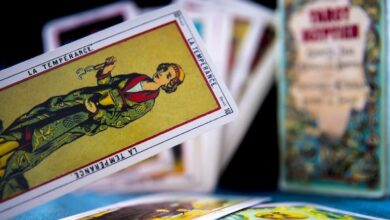Understanding dishonesty in children – when, how and why do children lie?

When asked if they peeked at toys, 40% of children confessed to peeking, even though they didn’t, in a recent study of toddler lying. When so many children make up lies for no good, it’s more than just cheeky lies.
Researchers from Poland and Canada tested the self-control of 18-month-old babies by asking them not to peek at toys. The same 252 children were re-examined at 2 years of age and 6 months later. Only 35% of the young participants disobeyed the request not to look, but 27% of the peepers perjured that they did as they were told.
From an early age, children are taught that lying is a moral failure. However, in some social contexts, children may also be encouraged to lie. Many parents make it clear to their children not to distort the facts, emphasizing the importance of being honest. However, they also deliver nuanced messages about honesty. For example, they may think that it is sometimes acceptable to tell a blatant lie to protect the feelings of others.
There are many reasons why the children in the study may have made false confessions. They are so young that they may have difficulty understanding the question. We know children tend to say yes more easily than adults when asked yes-no questions.
Research shows that children need to explore and test the boundaries of a new concept before understanding it. Play and learning go hand in hand, especially for children.
Fibbing appeared during the preschool years. Children from two years old know how to do it. Lying goes hand in hand with a child’s progress in social skills. Although lying is considered a problem behavior, it also indicates healthy brain development in children and is a cognitive milestone.
A child’s initial lies are only a few words long. As their cognitive skills develop, their lies become more complex. Falsehood involves more words and can be sustained for a longer period of time.
Don’t tell stories
To lie, children need to do three things. First, they need to have enough self-control to overcome their tendency to tell the truth. In psychology, we call this inhibitory control.
Two, they need to access short-term memory, as well as generate alternate scenarios at the same time. And third, children need to be able to switch back and forth between acting in accordance with the truth and acting in accordance with the falsehood they are building (cognitive flexibility).
Children are more likely to lie outright when they have a high understanding of emotions: skills that help them understand the nature, causes, and consequences of emotions in relation to themselves and others.
Parenting style plays a role in the development of blatant lies. Children who lie to protect the feelings of others are more likely to be raised by authoritarian parents who are nurturing, supportive, and responsive to their children’s needs. In contrast, children exposed to a punishing environment were more likely to lie and stick with the lie, perhaps as a way of protecting themselves against harsh punishment.
Set example
Adult behavior can influence whether children lie or not. Children who observed others or received rewards for telling the truth or were punished for lying were more likely to tell the truth.
Likewise, children who observed their friends being rewarded for confessing to a wrongdoing were more likely to tell the truth. Therefore, adults should be aware that children are paying as much attention to actions as they do to words.
Encouraging children to tell the truth by not lying in front of them and rewarding them for telling the truth, even if they act in an undesirable way, can encourage them to be honest in the future.
As adults, many of us struggle to admit that the fuzzy nuances between honesty and dishonesty are life’s social lubricants. The 2009 comedy The Invention of Lying, starring Ricky Gervais and Jennifer Garner, is set in an alternate reality in which lying does not exist. The first character to learn to lie in this movie, Gervais’s Mark, initially lies for his own good but realizes that dishonesty can be used to help others, such as to comfort others. his dying mother.
At the end of The Invention of Lying, Garner’s character Anna asks Mark why he doesn’t use his powers to lie to entice her to marry him. He replied that “it won’t count”. If we can be honest with ourselves about our relationship with lying, we can help our children learn to tell the truth when it matters most.
By Gadda Salhab, University of Portsmouth
This story was published from the wire dealer’s feed without text modification. Only the title has been changed.




